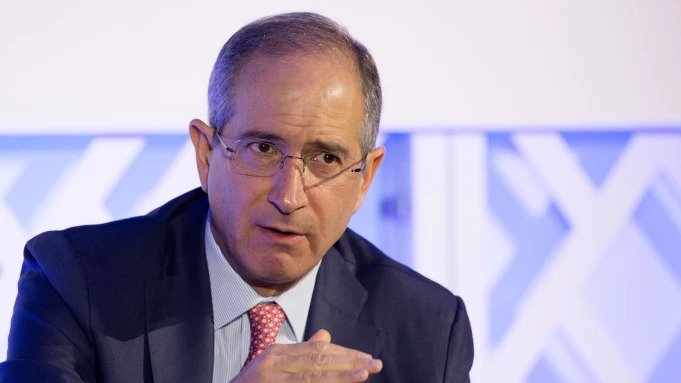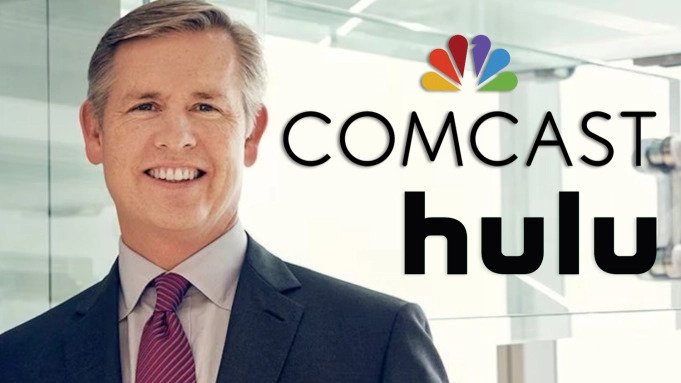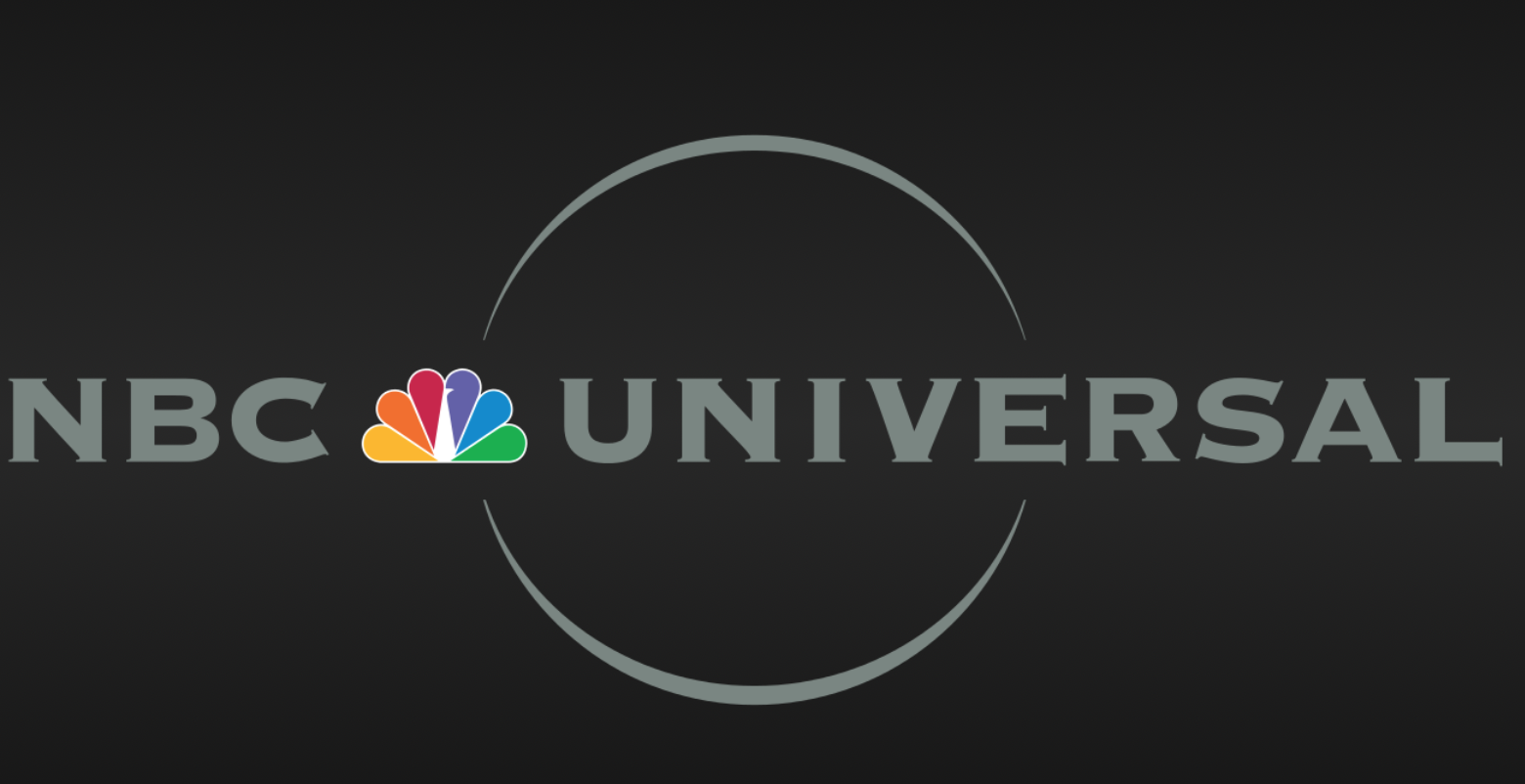Universal Studios’ Numbers Are Way Down
Comcast just reported its quarterly earnings, and it’s clear that Universal Studios is struggling.
Let’s discuss why Universal’s numbers are way down.
About Comcast

(Jeff Fusco/Comcast via AP Images)
As one of the strongest and best diversified companies in the world, Comcast wasn’t worrying about its latest earnings report.
The company has been built to sustain its revenue stream independent of what’s happening in society.

Photo: Comcast NBC Universal
Whenever one division struggles through a down phase, another is ready to carry the torch for a while.
Comcast has been exceptionally well run for most of our lives.

Image: Associated Press
The worst thing you can say about Comcast is that it’s never been customer-friendly, having “won” The Worst Company in America award twice.
What’s remarkable about Comcast is that most people still think of it as a cable company.

Well, that might not be the case for much longer, as Comcast officials hinted that a spinoff is potentially in the offing.
Now that linear television is in steep decline, Comcast President Mike Cavanagh just stated the following:

Photo: NY Times
“To that end, we are now exploring whether creating a new well-capitalized company owned by our shareholders and comprised of our strong portfolio of cable networks would position them to take advantage of opportunities in the changing media landscape and create value for our shareholders. We are not ready to talk about any specifics yet, but we’ll be back to you as and when we reach firm conclusions.”

Drew Angerer/Getty Images
In other words, the Comcast we’ve known since the 1980s is about to cut ties with its defining business model.
Why Is Comcast Considering This Move?

Photo: Comcast NBC Universal
Those of you who are also Disney fans may recall that Bob Iger said something similar about 18 months ago.
All these powerful media executives have seen the writing on the wall for years.

Photo: NBC Universal
Linear television earnings are in such steep decline that they’ve become a drag on the bottom line.
Comcast saw this coming from miles away, which is part of the reason why the company purchased NBCUniversal.

Photo: NBC/Universal
Similarly, Comcast branched out into fields like streaming media, with its Peacock service performing well during The Olympics.
In fact, this year’s Summer Olympics proved a remarkable growth driver, adding an estimated $1.9 billion to Comcast’s revenue.

Photo: Yahoo Sports
Not coincidentally, the company’s overall earnings increased from $30.1 to $32.7 billion this quarter.
You can tell that The Olympics’ revenue is responsible for most of that revenue boost.

Photo: billboard.com
But Peacock remains a loss leader for the company. During the most recent quarter, the streaming service lost another $436 million.
Comcast stated that Peacock increased its subscriber total to 36 million, up from 33 million before The Olympics.

Photo: Deadline
Even a company like Comcast cannot ignore $400+ million losses each quarter indefinitely.
Also, another of the company’s cores, broadband subscribers, dropped again.

Photo: Universal
Long story short, all these contributing factors led to higher revenue at Comcast, but its profits declined.
Thus, the company is ready to make some changes. Universal Studios is already doing that, but it’s experiencing growing pains.
About the Parks

Credit: Universal
And that’s what brings us to the main topic at hand. Comcast really needs Universal Studios to be making a profit right now.
As well-diversified as the company is, a couple of its main revenue streams are in the downward spiral right now.

Photo: Universal
Universal Studios appealed to Comcast because it’s historically a high-margin business, at least once The Wizarding World of Harry Potter opened.
So, this has been a breadwinner for 15 years now, not counting some of the pandemic nonsense.

Photo:instagram/universalorlando
The problem right now is that theme parks are trending downward, an issue that’s systemic rather than exclusive to Universal Studios.
If this were simply a Universal Studios problem, that’d be concerning.

There’s not much a company can do when the entire industry is stagnant, though, and that’s currently the case with theme parks.
After the pandemic, Revenge Travel became a thing, and people flocked to the parks that they’d missed so much.

Photo: People
This behavior peaked in 2022 and the first half of 2023. Ever since then, attendance has declined.
As I mentioned in July, Comcast indicated a decline. Soon afterward, industry analysis suggested a ten percent dip in 2023.

Credit: Universal
Alarmingly, attendance has continued to drop this year, as indicated by today’s earnings report.
Universal Studios by the Numbers

Image: Universal
You can read the earnings report here. Kristen Sabol has already discussed today’s primary takeaway.
Universal Studios is already selling tickets and packages for Universal Epic Universe.

Image: Universal
So, Comcast is acutely aware that its attendance problem is short-lived. Executives know the early sales numbers, which are grrrreat.
Cavanagh said as much while defining his corporation’s cores: connectivity (broadband and wireless), streaming, Universal Pictures, and…theme parks.

Image: Universal
Ergo, nobody is worried about the current attendance woes as a long-term problem. But attendance IS a problem right now.
Universal is spending more money now as it finishes building Epic Universe and the three new resorts in the area.

Image: Universal
Meanwhile, theme park revenue fell 5.3 percent year-over-year, finishing at $2.289 billion for the quarter.
This number is up from the previous quarter’s $1.975 billion, but it should be since it covered July-September.

Image: Universal
That’s the heart of the summer season and the start of Halloween Horror Nights. The annual loss is the bigger deal.
Even worse, the revenue total only reflects part of the problem.

Image: Universal
In terms of EBITDA, the all-important accounting figure regarding actual gains, Universal Studios plummeted 13.8 percent.
That’s in the range that would get people fired if not for the other contributing factors.

Image: Universal
The good news is that it’s up significantly from $632 million last quarter to $847 million this quarter.
However, EBITDA is down from $983 million last year at this time.
Final Thoughts

Image: Cedar Fair
So, the trendline here is impossible to ignore. Universal Studios had a financially solid 2023, but its attendance flatlined.
In 2024, the parks are in sharp decline with revenue AND attendance.

Image: Universal
The earnings report flatly states it, too: “Revenue for Theme Parks decreased primarily due to lower revenue at our domestic theme parks, driven by lower guest attendance.
“Adjusted EBITDA for Theme Parks decreased, reflecting lower revenue and consistent operating expenses.”

Image: Universal
Stating the obvious, a lot is riding on Epic Universe.

Thanks for visiting UniversalParksBlog.com! Want to go to Universal? For a FREE quote on your next Universal vacation, please fill out the form below and one of the agents from Let’s Adventure Travel will be in touch soon!
Feature Photo: Universal













